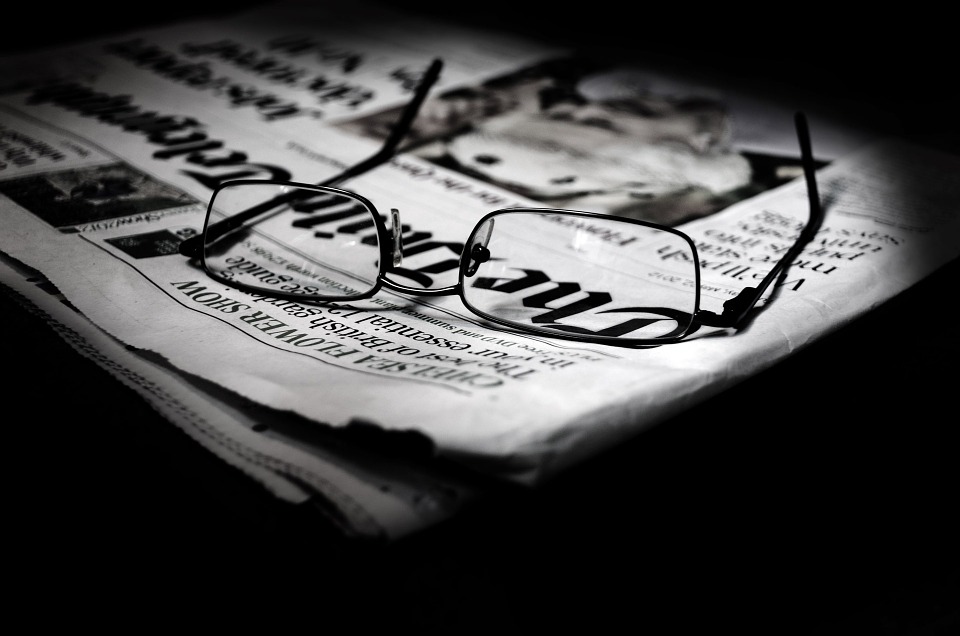
The 2018 World Press Freedom Index by Reporters Without Borders adds further weight to this: of the five countries that recorded the biggest falls in press freedom since 2017, four were in Europe (Malta, Czech Republic, Serbia, Slovakia).
At Free Press Live, our speakers will give their takes on journalists’ safety in the so-called “cradle of democracy”. We spoke to three European journalists who are concerned about the deterioration of press freedom in their continent.
Marilù Mastrogiovanni, editor of Il Tacco d’Italia newspaper, Italy
 “I have received police protection at different times from 2007. Since 2017, security measures were increased due to threats I received from local politicians: I had showed they were close to members of the Sacra Corona Unita, the mafia of southern Puglia.
“I have received police protection at different times from 2007. Since 2017, security measures were increased due to threats I received from local politicians: I had showed they were close to members of the Sacra Corona Unita, the mafia of southern Puglia.
I didn’t think these measures were enough to guarantee the safety of my children. When they set fire to my house at night, [me and my husband] decided it was time to leave our home.
[In Italy], the risk involved in reporting on the mafia is very high. If you investigate the mafia and you’re an honest journalist, sooner or later you’ll end up writing about their links with politics, dirty money and corruption.
This danger is increasing in the rest of Europe. We must overcome the traditional idea we have of the mafia. Where there is dirty money there is a mafia, and this type of business and political mafia pollutes all of Europe.
The EU should create a fund to support freelance journalists and their investigations. If Europe is the cradle of democracy and democracy is based on freedom of thought, then Europe must support the free press.”
Jean-Paul Marthoz, columnist Le Soir and visiting professor at Université Catholique de Louvain, Belgium
 “The murders of journalists in Malta and Slovakia are an indication that something is wrong in Europe. The killings surprised me, but they happened in a context of a general degradation of the state of freedom of expression in Europe.
“The murders of journalists in Malta and Slovakia are an indication that something is wrong in Europe. The killings surprised me, but they happened in a context of a general degradation of the state of freedom of expression in Europe.
There have been too many attacks from politicians against the press, which has created an atmosphere that is not very conducive to journalists playing their role as a watchdog.
Many journalists are not attacked physically but in other ways. There is increasing harassment on social media against journalists, especially women. There are also legal pressures, with some in circles of power using defamation laws to muzzle the press.
I believe there is a link between the dangers that journalists are facing and the fact that even in the most established democracies the systems of checks and balances and judicial control are infected.
A number of institutions that are supposed to be the guardians of integrity are not really working, for example in Malta and Slovakia. Investigative journalists are stepping into that space, with all the risks involved.
Freedom of the press is the canary in the coal mine. I do think that safety of journalists deserves more attention, because killings are a warning something bigger might be coming.”
Dragana Pećo, investigative journalist at Crime and Corruption Reporting Network (KRIK), Serbia
 “With KRIK, we have published many stories revealing corruption and crime among high officials in Serbia. Every time we post a big story there is some kind of trouble after.
“With KRIK, we have published many stories revealing corruption and crime among high officials in Serbia. Every time we post a big story there is some kind of trouble after.
Dozens of Twitter accounts will try to discredit the journalists by calling them foreign spies or agents for [George] Soros. One of these bots even issues death threats. Last year in July, while I was traveling, someone went into my apartment in Belgrade and made a mess – even the garbage was out on the floor. We filed criminal charges [for the death threat and the burglary] but nothing happened with the cases.
In public, politicians will say the media are free to ask any questions. But at the same time, they use the same words as the social media critics, saying we’re foreign agents who want to bring down the government. That shows they’re not willing to protect journalists.
As an investigative journalist here in Serbia, you’re constantly thinking about your safety. There are so many cases of journalists who were attacked. And we see the numbers getting worse.
I am worried but I keep going because this is still my dream job. I see it as my mission to keep investigating, for all of society.”
The article was published first by Free Press Unlimited.